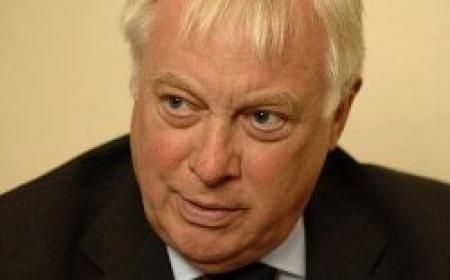ID :
95199
Wed, 12/16/2009 - 13:21
Auther :
Shortlink :
http://m.oananews.org//node/95199
The shortlink copeid
EU should not pay for Israel’s occupation : former EU commissioner

London, Dec 16, IRNA -- The EU should make clear to Israel that it payment of costs for its occupation of Palestine “cannot be an open-ended commitment,” says former European commissioner for external affairs Lord Christopher Patten.
“At present, international donors meet most of the bill for the consequences of occupation that should be met under the Geneva convention by Israel,” Patten said.
He said that over the last year, the cost to the EU and its members has risen to about Euro 1 billion and asked “how long can donors justify this expenditure?”
The former commissioner, who now co-chairs the International Crisis Group, was responsible for five years for the donations spent from EU taxpayers on Palestine, which he said had “drained away into the blood-soaked sand.”
“Many projects funded by European taxpayers have been reduced to rubble by the Israeli Defence Forces,” the British peer lamented in an article published in the Financial Times Tuesday.
“Is Europe’s role in the region to be the paymaster for intransigence and the use of disproportionate,” he questioned.
“If Israel continues, as its prime minister says it will, to build settlements, making an agreement on a viable Palestinian state all but impossible, should the international community simply shrug its shoulders and write more cheques?” he asked.
In the article, Patten welcomed the latest EU initiative calling for the urgent resumption of negotiations, within an agreed time-frame, for a comprehensive peace for Israel and Palestine.
“It was not quite as good as it should have been. Acting seemingly on instruction from Israel’s foreign ministry, Italy, Hungary, the Czech Republic and Romania fought to dilute the original text. But what survived was still pretty good,” he said.
But he believed that the words from Brussels should be regarded as the “beginning of diplomatic activity, not the end” and said Europe needed to move quickly to do two things.
“First, the statement should be the basis not only for the EU’s relations with Israel and Palestine but also for its work with international partners in trying to promote a settlement,” the former commissioner suggested, adding that the US should support it.
Secondly, he believed that the EU could play a valuable role in helping establish a functioning Palestinian authority by helping to prepare for elections next year and stating clearly it will “accept the results provided the process is fair.”
The agenda for Europe could help to get negotiations back on to the fairway, Patten said, but said the present stand-off between Israel and the Palestinians is not the basis for a sustainable peace. “Drift and despair are not options,” he warned.
“At present, international donors meet most of the bill for the consequences of occupation that should be met under the Geneva convention by Israel,” Patten said.
He said that over the last year, the cost to the EU and its members has risen to about Euro 1 billion and asked “how long can donors justify this expenditure?”
The former commissioner, who now co-chairs the International Crisis Group, was responsible for five years for the donations spent from EU taxpayers on Palestine, which he said had “drained away into the blood-soaked sand.”
“Many projects funded by European taxpayers have been reduced to rubble by the Israeli Defence Forces,” the British peer lamented in an article published in the Financial Times Tuesday.
“Is Europe’s role in the region to be the paymaster for intransigence and the use of disproportionate,” he questioned.
“If Israel continues, as its prime minister says it will, to build settlements, making an agreement on a viable Palestinian state all but impossible, should the international community simply shrug its shoulders and write more cheques?” he asked.
In the article, Patten welcomed the latest EU initiative calling for the urgent resumption of negotiations, within an agreed time-frame, for a comprehensive peace for Israel and Palestine.
“It was not quite as good as it should have been. Acting seemingly on instruction from Israel’s foreign ministry, Italy, Hungary, the Czech Republic and Romania fought to dilute the original text. But what survived was still pretty good,” he said.
But he believed that the words from Brussels should be regarded as the “beginning of diplomatic activity, not the end” and said Europe needed to move quickly to do two things.
“First, the statement should be the basis not only for the EU’s relations with Israel and Palestine but also for its work with international partners in trying to promote a settlement,” the former commissioner suggested, adding that the US should support it.
Secondly, he believed that the EU could play a valuable role in helping establish a functioning Palestinian authority by helping to prepare for elections next year and stating clearly it will “accept the results provided the process is fair.”
The agenda for Europe could help to get negotiations back on to the fairway, Patten said, but said the present stand-off between Israel and the Palestinians is not the basis for a sustainable peace. “Drift and despair are not options,” he warned.





